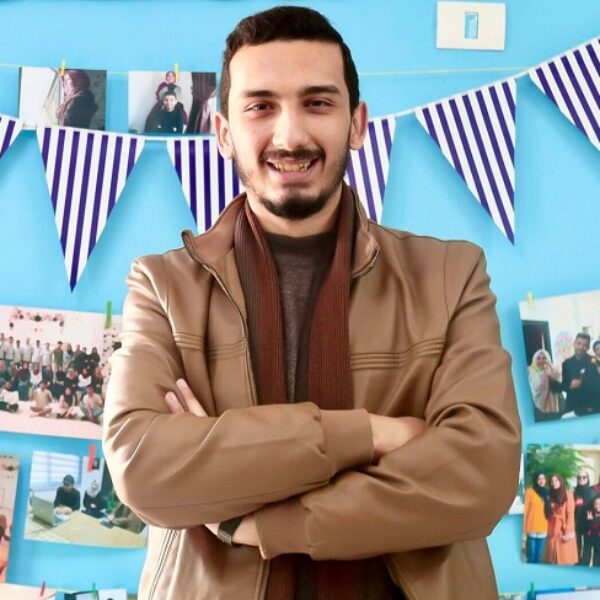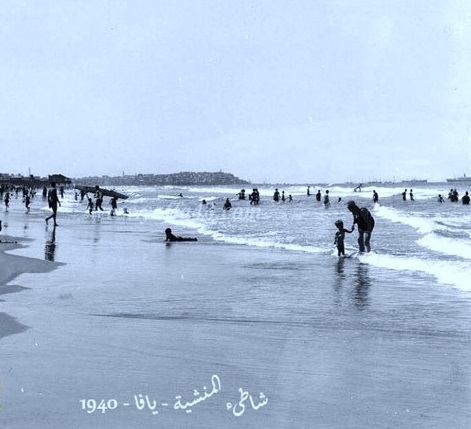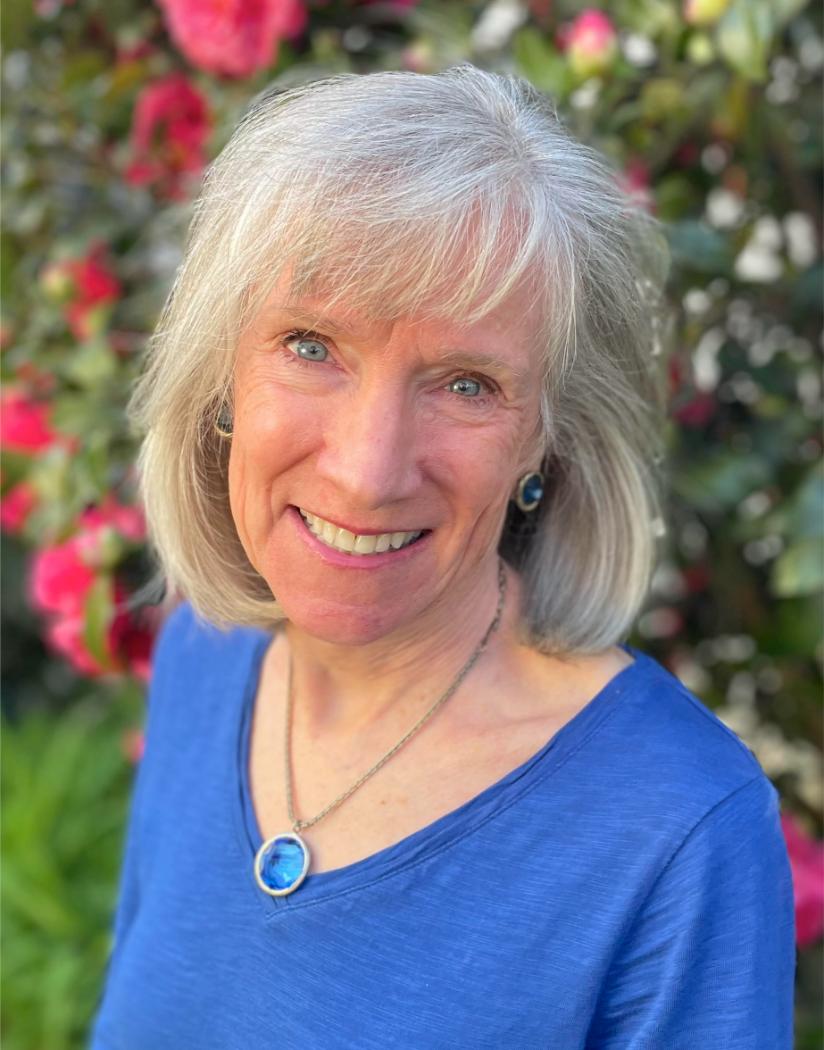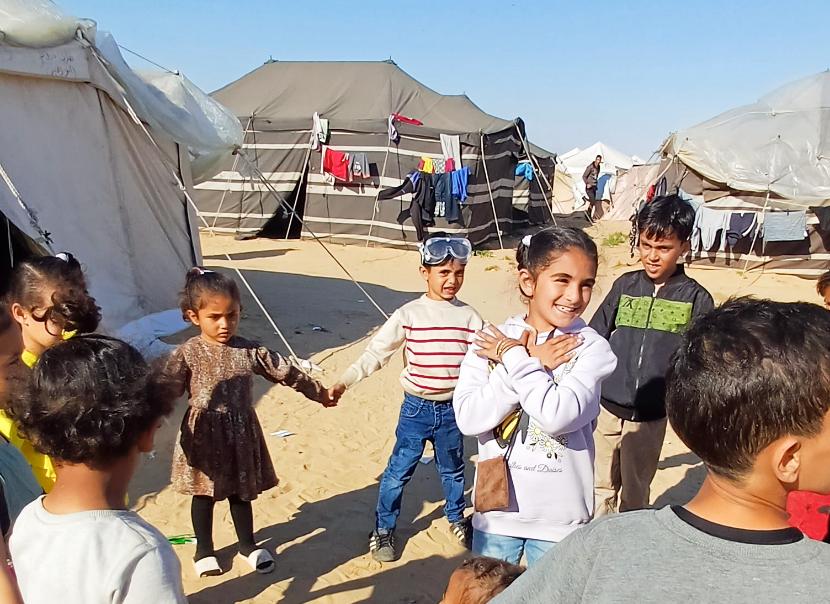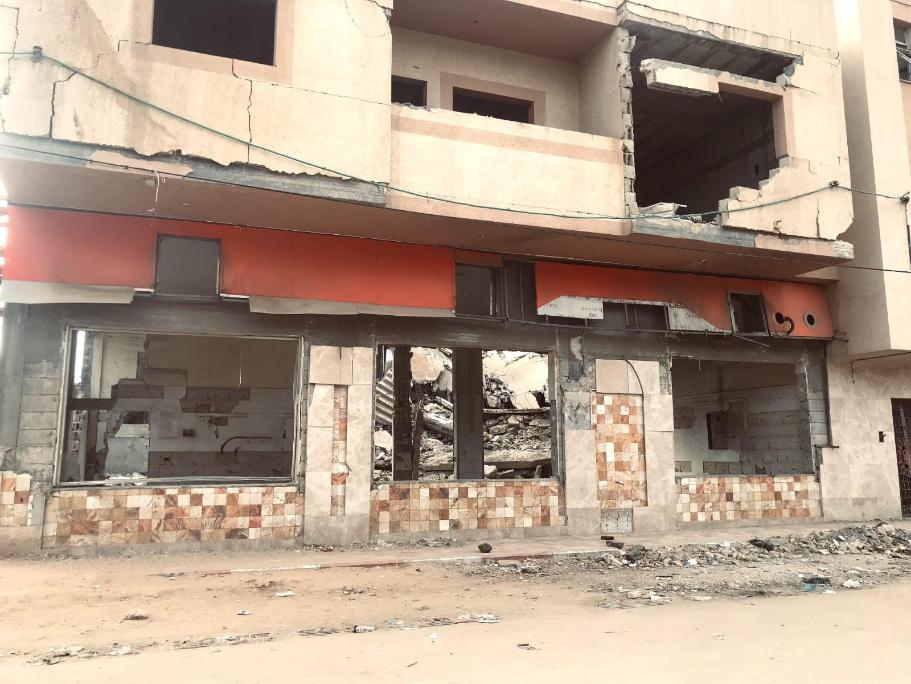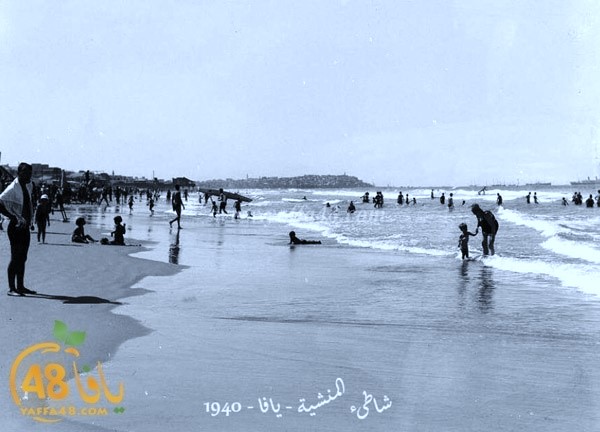
One more time around the clock for the minute hand and we will be gathered for breakfast at the beach. Roses of joy and smiles flush our faces after two days of food preparation and packing. For my family, a seaside picnic is worth all the effort, especially if it is to the Yaffa sea.
All are in a delightful mood. My two grandmothers and grandfathers converse on the stone bench in front of our house while observing their sons and daughters’ final touches of carrying bags outside. At the dining room entry door, my calm mother sits next to my father, amused by the noises coming out the children’s room where they are getting dressed, brushing their hair and packing the newly bought toys that they will use to make sandcastles and destroy them and fight over rebuilding them again and again.
Their mothers, my aunts, shout at their children for not getting ready until the last minute. More trouble is that I am not ready, either. Lateness is not exclusive to kids. One hour earlier, I helped my grandfather Hassan, a youthful man in his sixties whose face shines with kindness and whose wrinkled forehead does not diminish his handsome face, pick two handfuls of mint from our backyard. He loves to drink mint tea at the beach while watching the beauty of the warm sunset glistening on the tranquil sea waves.
When the minibus that my father had reserved to take us to the beach arrives, all of us, children and adults alike, applaud and hurry out the door with loads of packages. We pile our bags into the bus trunk. My little cousins in the back clap happily, holding the delicious candy bars their father bought them. Their older brother, Anas, has already immersed himself in the fantasy book that he took from the bookcase in my room. And all over the bus hovers the scent of thyme mana’ish that my teita (grandmother) baked in her antique clay oven for breakfast at the beach. It competes with the sweet aroma of my aunt’s musakhan trays and offers a lovely distraction from the loud chats of the driver with uncle Yousof and the epic noise from the back seat.
I am in seventh heaven, because I have won a fierce battle to sit next to my teita on the middle row of the bus. She vibrates love and warmth into my heart with every story she tells me about the romantic days of her childhood. During summer harvest, for example, she would go with her father in the early morning to the farm to milk the cow and prune the fruit trees. I had brought a book from home to fill my time reading, but, by good fortune, I can’t focus on it; my teita showers me with her marvelous childhood stories while glancing fondly back at her grandsons and daughters playing, singing and glossing their lips with chocolate.
***
The sweet scene of my family on the bus vanishes and I sit upright. My face turns pale and my chest is so tight I can’t breathe. I throw off the bed covers and made my way towards the door, gazing unblinkingly at my arms, still in the position of hugging my grandmother’s arm. The door leading to the dining hall is open, but I can hear no joyful noise emerging from it. No one is there — no grandmothers, no grandfathers, no cousins, neither my two aunts nor my uncle. There is no backyard, no summer harvesting, no family teatime, no loud laughter, no mint planting, no hot mana’ish smell wafting in the air, no chocolate bars from my uncle, no new dishes from my aunt prepared for our seaside journey.
I sit on the floor staring heavily at the objects around me. Everything’s a blur and unfamiliar — our room arranged tastefully, and with no extravagance, as is my wife’s habit. All the books are organized in the small bookcase; no one has taken any book to read at the seaside. Our wooden clothes-hanger is tidy; the bamboo rocking chair seated in front of a coffee table under the window is unoccupied; the leather curtains lift and a ghost-like evening shadow sneaks into the room. On the right, the faint flame of fire dancing alone in the heater is reflected on the half-shattered mirror that is angled a bit higher to hide the crack. From the ceiling, a dim light emanates from the lamp like a gloomy candle. It’s all ours but seems like tragic, unfamiliar fragments. Memories etched deep down have surfaced in the dream, and I ache to recall them.
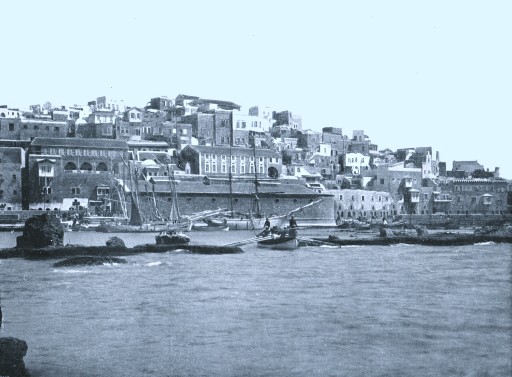
After two seconds of reality — two seconds of dread and nothingness — I realize no barbeque picnic to the Yaffa sea was planned. And the people I was with in the dream are not around. It was a dream, only a dream that I was contained in, an innocent, childish, primordial grasp at felicity before being crushed by the cruel break to reality. I put up a good fight to snap back, but I lose. Twenty-two years of facing life in Gaza has taught me how to win battles in life, but sometimes I lose. Losses of surrounding, of love, of laughter, of family, of tranquility and freedom.
My beloved family members, one following the other, were killed by different harsh circumstances, all due to the inhumane occupation. Some not permitted to exit Gaza and get the medications needed after an unceasing struggle with a disease; some in diaspora and unable to reunite with us even after their deaths because of the blockade; and some overburdened by heartbreak and nostalgia following a lifetime of resilience. All while clutching their homes’ keys and dreaming of their lands in occupied Palestine.
Yes, we used to travel together to the sea, but in Gaza, not in Yaffa, because our Yaffa home with its old, unique architecture, which used to host such preparations for previous generations, is now a pile of ashes on which is built a colony of foreign settlers who came to Palestine after my family’s catastrophic expulsion in 1948.
I unlock the window and try to refuel my wearied lungs with icy air. The streetlights have just been lighted. The peach-colored flames of twilight move gently in the sky, coupled with wet hail that lands like glitter on palm leaves. Winter storms have been raging day and night over the past days. But now they are moving away, which calms my interior storm.
Asmaa knows I am awake.
“What’s wrong, honey?” she asks. “It seems you had a bad dream. You’ve only slept two hours. I haven’t yet finished laundry.”
“I am fi.. I’m fine.”
I wish I could sleep more, but I don’t want to. Sleep brings merciless flashbacks that cause so much pain when I awaken. While sleeping, I dream and hope; I party; I travel; I wear Zara; I eat fettuccine; I study in Oxford—and I unite with my family, in Palestine, whom I have always loved so much and hug passionately with arms. I dream and delve into generous imagination. Whether asleep or awake, dreaming clings to me painfully either way.

